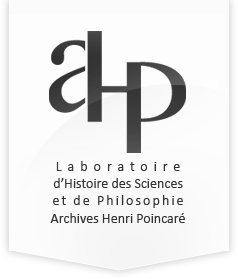Scientific Collaboration: Do Two Heads Need to Be More Than Twice Better Than One?
Résumé
Epistemic accounts of scientific collaboration usually assume that, one way or another, two heads really are more than twice better than one. We show that this hypothesis is unduly strong.We present a deliberately crudemodel with unfavorable hypotheses.We show that, even then, when the priority rule is applied, large differences in successfulness can emerge from small differences in efficiency, with sometimes increasing marginal returns. We emphasize that success is sensitive to the structure of competing communities. Our results suggest that purely epistemic explanations of the efficiency of collaborations are less plausible but have much more powerful socioepistemic versions.
Fichier principal
 Boyer-Kassem_Imbert_%28forth%29_Scientific_Collaboration_Do_two_Heads.pdf (350.01 Ko)
Télécharger le fichier
Boyer-Kassem_Imbert_%28forth%29_Scientific_Collaboration_Do_two_Heads.pdf (350.01 Ko)
Télécharger le fichier
| Origine | Fichiers produits par l'(les) auteur(s) |
|---|



